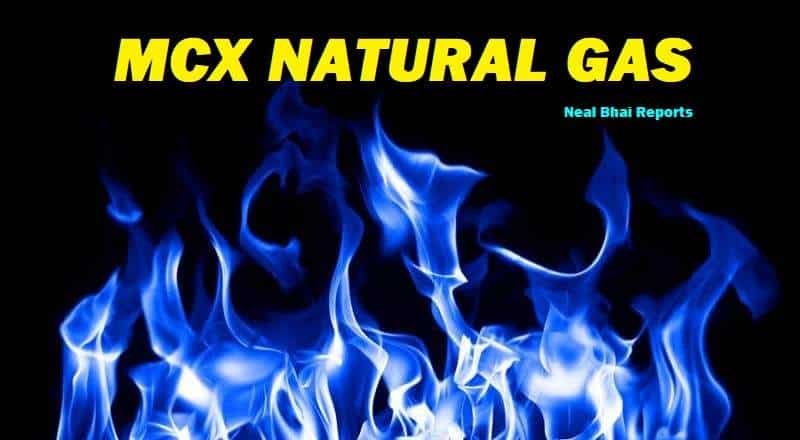NATURAL GAS MCX Blast 💥💥💥💥 121 To 135.90, I told you Buy 500—1000 Lots, ENJOY 🔥🔥🔥🔥
RONA MANA HAI HAI TRADE WITH NEAL BHAI AND MINT MONEY
NATURAL GAS 1ST TARGET FULLY DONE : – 134 NEXT TARGET 158
MCX NATURAL GAS TIPS : Natural Gas MCX – Above 114 Target 134—158, Any Panic Buy 500-100 Lots
By 2021, the natural gas prices may rally towards the $4.00 mark as analysts predict they will range between $3.25 and $3.50 as the Covid-19 pandemic lapses.
Thesis
Despite the apparent decline in demand of oil and gas due to reduced factory activity, the share prices of natural gas stocks are headed for a major boost due to suppression of crude oil prices. Also, the novel Covid-19 (coronavirus) outbreak has diverted the global attention from a high consideration of climate change. This pandemic has created panic from both social and economic fronts, with direct effects seen on life as opposed to factory activity that is the main producer of greenhouse gases (GHGs). In comparison with the pandemic, GHGs are now seen as threats. In this article, I will discuss why I am bullish with natural gas prices, especially Cabot Oil & Gas (NYSE:COG) stock.
Decreased Debt Levels
Cabot’s market capitalization reduced from $10 billion in 2019 to $6.85 billion in 2020. This reduction implied that the stock price had also decreased from $27.36 on April 15, 2019, to the current price of $17.35 (as at 3rd April 2020, a decline of 36.59%). During this difficult period of the Covid-19 outbreak, it is expected that the company will require positive cash flow and low debt standing to push through.
In its 2019 end-of year earnings report, the oil and gas mining giant lowered its net-debt to EBITDAX ratio to 0.7 times, 0.3 points below the ratio attained in 2018. Further, its ratio of net debt to capitalization stood at 32.2%, a decline of almost 5% from the 2018 ratio that was 37%. The company entered 2020, with a total debt of $1.2 billion and a positive cash balance of $200 million. The company announced in 2019 that it had secured a revolving line of credit amounting to $3.2 billion scheduled for maturity in 2024. What’s more important is that Cabot has no outstanding debt in this facility. This exception leaves the company with a liquidity base of $1.7 billion.
Economic strongholds such as an expected cash flow of up to $300 million and capital base of $575 million were essential aspects that made Cabot to forecast daily natural gas production in 2020 at 2,400 Mmcfe. Insights contained in a report by McKinsey show that, with the global economic slowdown caused by the Covid-19 (coronavirus), production of oil and gas is scheduled for a decrease in 2020.
Dwindling Gas Prospects in the US
Owing to decreased market value of its Marcellus shale gas assets, Chevron Corporation (NYSE:CVX) took a writedown of the same in late 2019 worth $11 billion. The forecast for natural gas production is that it will decline in 2020 and 2021 due to the low profitability of drilling aspects, especially in America. Additionally, the pandemic may likely lead to a global recession that will harden accessibility of capital. Chevron’s long-term debt-to-equity ratio in March 2020 was 15%, with Exxon Mobil (NYSE:XOM) at 12.7%.
Further reports indicate that Chevron cut its Permian natural gas and oil production by 20% this March. The company was well set to produce more than 1 million b/d of oil and its equivalent from 2020 onwards after a successful production of 514,000 b/d in 2019 (Q4). In his statement on the impact of the coronavirus on oil and gas production, the CEO, Michael Wirth had the following to say,
Given the decline in commodity prices, we are taking actions expected to preserve cash, support our balance sheet strength, lower short-term production, and preserve long-term value.”
Similarly, Pennsylvanian-based hydrocarbon company, EQT Corporation (NYSE:EQT) in January 2020, announced that it had taken an impairment of $1.8 billion. After its purchase of the Rice Energy Company in 2017, EQT continued to post disappointing results till date. On 30th March 2020, Moody’s downgraded EQT to Ba1 status. The company had declared that it would issue bonds to complete refinancing of its debt portfolio. To boost its cash flow, the company had proposed to sell off its assets and reduce debt by $1.5 billion.
